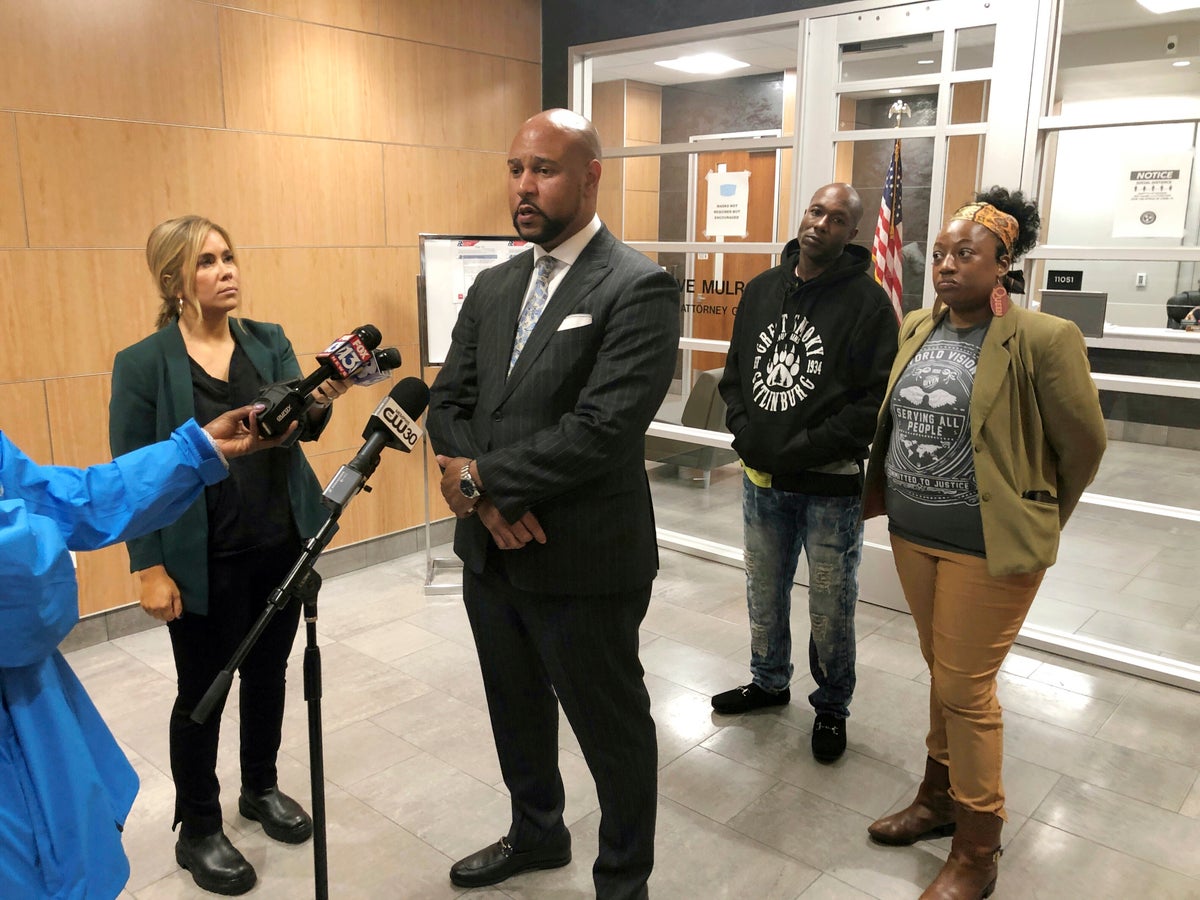
The top prosecutor in Memphis agreed Thursday to review additional information about the fatal shooting of a 19-year-old Black man during an attempted arrest by a white police officer after the man's family asked for the case to be reopened.
Shelby County District Attorney Steve Mulroy met with the father of Darrius Stewart and the father's lawyer. They want the case presented to a grand jury for a second time for consideration of charges against former Memphis officer Connor Schilling.
The request comes after the January arrest, beating and death of Tyre Nichols, a Black man, in Memphis. Five officers, who also are Black, have been fired and face charges including second-degree murder in connection with Nichols’ death. The district attorney’s office has said it will be reviewing past cases involving those officers.
Stewart's father, Henry Williams, and his lawyer, Carlos E. Moore, have asked for the case to be reopened under the district attorney's Justice Review Unit. The independent unit works separately from active prosecutions in the district’s attorney’s office to review past cases, and it reports directly to Mulroy.
Then-Officer Connor Schilling shot Stewart in July 2015 during a struggle following a traffic stop that escalated after an attempted arrest for outstanding warrants. Stewart was not carrying a weapon.
A grand jury declined to charge Schilling despite a recommendation by then-District Attorney Amy Weirich, who reviewed an 800-page Tennessee Bureau of Investigation report on the shooting. Weirich said she asked the grand jury to indict Schilling for voluntary manslaughter and employment of a firearm during the commission of a dangerous felony.
Schilling has said he shot Stewart because he feared for his life. He retired due to a disability, police said, in a move that allowed him to receive disability pay.
In September 2016, a federal prosecutor announced that there was insufficient evidence to file civil rights charges against Schilling.
The U.S. Justice Department also decided against launching a a “pattern or practice” investigation of civil rights violations in the department. Such inquiries often result in sweeping reforms, including staffing and training overhauls.
Moore told reporters after the meeting that the DA's office has reviewed existing evidence from the Memphis Police Department, the Tennessee Bureau of Investigation and a medical examiner, but prosecutors said they would not able to secure a first-degree murder indictment. Moore said a second-degree murder indictment could be possible.
Moore said he can provide prosecutors with more information from a federal lawsuit against Memphis that broke down after a judge dismissed the city as a defendant.
“We have tons of witness statements and medical opinions that they have not been privy to, they have never seen," Moore said.
The district attorney has agreed to review the information Moore will provide and has committed to following up after review, his office said in a statement.
“During our meeting, the attorney informed us that there was information that we may have not been privy to that was uncovered during the civil investigation,” Mulroy said.
Art Quinn, Schilling’s lawyer in the Stewart shooting, said he hasn’t heard of new evidence being presented in the case. Quinn noted that the Tennessee Bureau of Investigation has already done an investigation, and a grand jury did not indict Schilling.
“I don’t know of any basis why the case would be reopened,” Quinn told The Associated Press on Wednesday.
A timetable for the review of additional evidence from the previous civil investigation was not immediately known.







